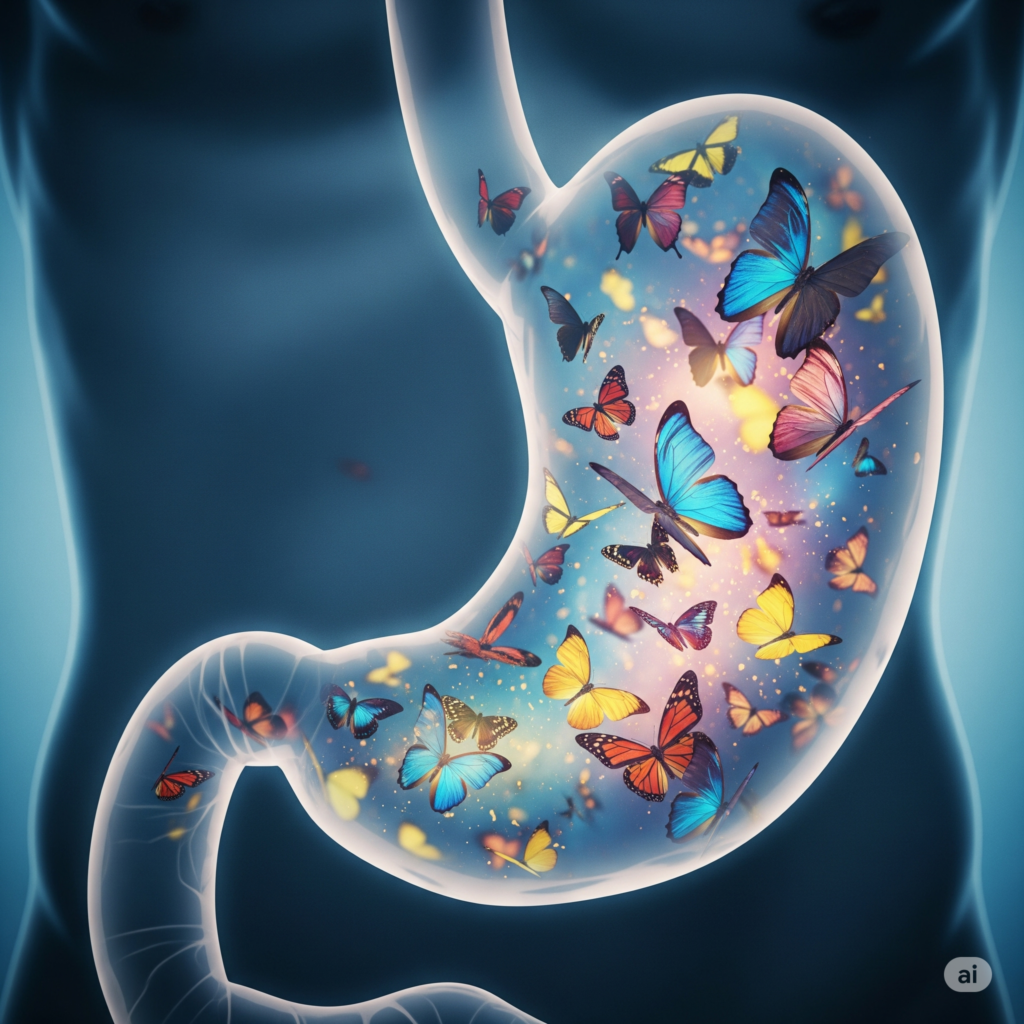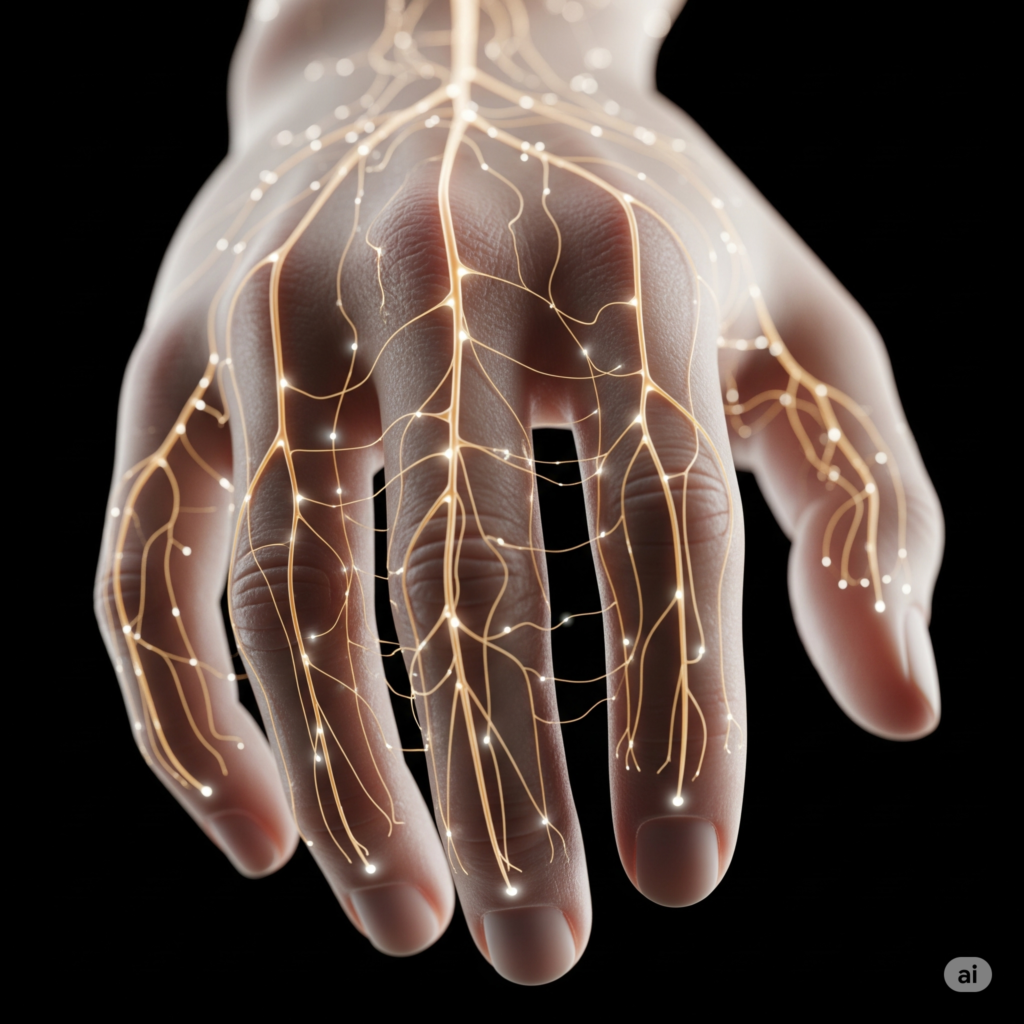Why do we get butterflies in our stomach?
Understand what butterflies in the stomach are and why we feel them
That peculiar fluttering, ticklish, or wobbly sensation in your stomach – often described as “butterflies” – is a universal experience. Whether it’s before a first date, a big presentation, or a thrilling adventure, this feeling is instantly recognizable. But have you ever stopped to wonder why our stomachs react this way to excitement, nervousness, or even fear? It turns out, this common idiom is rooted deeply in our body’s complex physiological responses. Let’s delve into the fascinating science behind those stomach flutters.
The Brain-Gut Connection: Your “Second Brain” at Work

To understand butterflies, we first need to talk about the incredible link between your brain and your gut. This isn’t just a casual connection; it’s a superhighway of communication known as the brain-gut axis.
- The Enteric Nervous System (ENS): Often called the “second brain,” the ENS is a vast network of neurons lining your entire digestive tract. It can function independently but is constantly in communication with your central nervous system (CNS – your brain and spinal cord).
- Vagus Nerve: The Communication Superhighway: The vagus nerve is the longest cranial nerve and a primary pathway for communication between the brain and the gut. It carries signals in both directions, making it crucial for relaying emotional and stress responses to your digestive system.
When you’re experiencing a strong emotion, whether positive excitement or negative anxiety, your brain sends signals down this axis, directly impacting your stomach.
The “Fight or Flight” Response: Your Body’s Ancient Alarm System
The feeling of butterflies is fundamentally linked to your body’s ancient “fight or flight” response, also known as the acute stress response. This is an evolutionary mechanism designed to prepare you for immediate action when faced with a perceived threat or exciting challenge.
- Adrenaline and Noradrenaline Surge: When your brain perceives a situation as significant (exciting or threatening), it triggers the release of stress hormones like adrenaline (epinephrine) and noradrenaline (norepinephrine) from your adrenal glands.
- Blood Flow Redistribution: These hormones cause your body to redistribute blood flow. Blood is shunted away from non-essential systems (like digestion) and directed towards vital muscles and organs that you’d need for fighting or fleeing.
- Digestive Slowdown: With reduced blood flow and altered nerve signals, your digestive system literally slows down. The normal rhythmic contractions of your stomach and intestines (peristalsis) can become irregular, leading to that churning, fluttering sensation. It’s your gut going on “pause” so your body can focus on the perceived emergency.
Why Different Emotions Cause the Same Sensation

It’s fascinating that both extreme excitement and intense anxiety can trigger the same butterfly feeling. This is because, from a physiological standpoint, both are forms of heightened emotional arousal.
- Anticipation and Arousal: Whether it’s the anticipation of something wonderful or the apprehension of a stressful event, your body registers a significant emotional state. The “fight or flight” system doesn’t necessarily distinguish between “good” and “bad” arousal; it simply reacts to the intensity.
- Neurotransmitter Release: The release of neurotransmitters like dopamine (associated with pleasure and reward) and serotonin (which also plays a significant role in the gut) in response to excitement can also influence gut motility and sensation, sometimes creating that fluttering feeling.
The Role of Nerves and Sensitivity in Your Gut
Your gut is incredibly sensitive. It’s packed with nerve endings, making it highly responsive to changes in its environment and to signals from the brain.
- Visceral Sensitivity: Some people have a more sensitive visceral nervous system, meaning their gut is more prone to reacting to emotional stimuli. This can lead to more pronounced or frequent butterfly sensations.
- Gastric Motility Changes: The irregular contractions and relaxations of your stomach muscles, driven by the shift in blood flow and nerve signals, are what you physically perceive as the “fluttering.” It’s not actual butterflies, but the sensation of your stomach’s normal rhythm being disrupted.
Embracing the Butterflies: A Sign of Being Alive

While sometimes uncomfortable, the feeling of butterflies in your stomach is a natural and often healthy physiological response.
- A Sign of Engagement: It means you’re engaged, invested, and reacting to significant moments in your life. It’s a sign that your body is preparing you, whether for a challenge or a joyful experience.
- Part of Human Experience: From first crushes to thrilling adventures, this unique sensation is a shared human experience that adds a distinctive texture to our emotional lives.
So, the next time you feel those familiar flutters, take a moment to appreciate the intricate dance between your brain and your gut. It’s a reminder of your body’s incredible ability to respond to the world around you, preparing you for whatever exciting or nerve-wracking moment lies ahead. It’s truly a marvel of human physiology!




